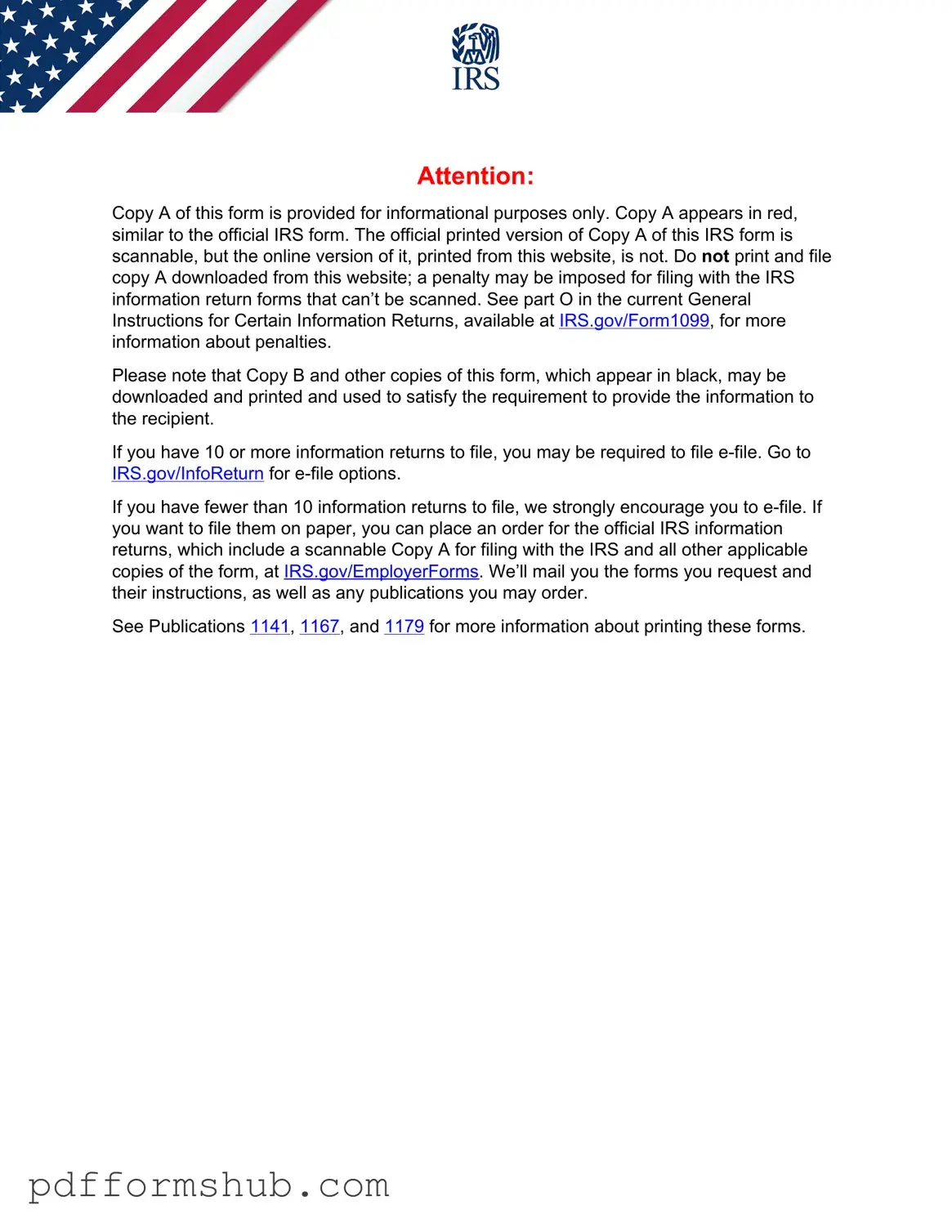Fill in Your IRS 1099-MISC Form
The IRS 1099-MISC form is a tax document used to report various types of income received by individuals and businesses that are not classified as wages. This form is essential for freelancers, independent contractors, and other non-employees who earn income throughout the year. Understanding how to accurately fill out the 1099-MISC is crucial for compliance and ensuring that all income is properly reported to the IRS.
Ready to tackle your 1099-MISC form? Click the button below to get started!
Customize Form

Fill in Your IRS 1099-MISC Form
Customize Form

Customize Form
or
Free PDF Form
Short deadline? Complete this form now
Complete IRS 1099-MISC online without printing hassles.